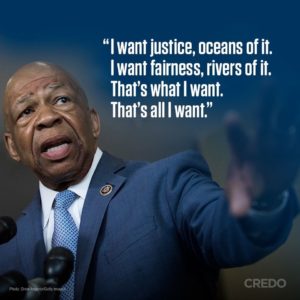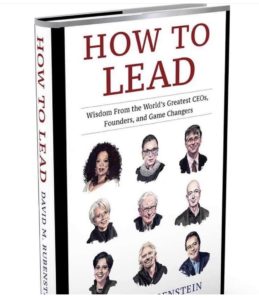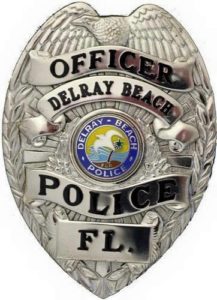
I read an interview with Kenosha, Wisconsin Mayor John Antaramian that I found very interesting.
Mayor Antaramian has been in the national news lately after his city erupted in protest after the shooting of Jacob Blake.
Blake, 29, a Black man, was left paralyzed after an encounter with local police.
In my experience—which I’ll get to in a minute—the level of unrest that cities experience in the wake of violence is directly correlated to the relationships and work that has been done years before.
If your police department and city government connects to the community, your odds of finding a positive way forward increase exponentially.
Former Delray Beach Police Chief Rick Overman—who was a remarkable chief—used to say that in his line of work trouble was inevitable. You did all you could to avoid it—you train your officers, you create rigorous standards for hiring, you embrace community policing—but at some point something bad was bound to happen. You will face a challenge, it’s the nature of the profession.
Policing is dangerous and important work.
While I can’t pretend to know what it’s really like, I’ve had a glimpse by spending lots of hours in the back of cruisers as a journalist and a policymaker. I’ve met and gotten to know scores of officers over the years.
I’ve had many late night conversations with officers who confided in me about what it’s like to put on a gun and a vest and head out to work not knowing what you are going to encounter. Those conversations have deepened my appreciation for the special people who choose that profession.
Chief Overman used to talk about something he called the “reservoir of goodwill.” Overman knew that there would come a day when something tragic would happen—he felt it was inevitable in his line of work—and his department would have to draw on that reservoir. So he and his officers worked every day to fill the reservoir by building trust and relationships citywide. Community policing was not a PR stunt or a photo op, it was a governing philosophy. Officers were urged to get out of their cruisers and to find ways to get to know the people and businesses in their zones.
We have seen incredible examples of this—officers past and present—who have connected in truly wonderful ways with the communities they serve. It makes all the difference in the world.
But police departments—as important and essential as they are—cannot do it all.
Again, Chief Overman recognized this fact. He needed the community to volunteer. He needed the community to tell his officers what was really happening on the street and he needed city government to care about all parts of our city.
Now many cities talk the talk.
They issue proclamations and mouth the words about investing in underserved communities. But too few cities walk the walk.
And those cities get in trouble when something happens and they realize that the reservoir has run dry or doesn’t exist at all.
Which leads me back to Mayor Antaramian in Kenosha.
He has been mayor of that town off and on for 20 years. When he was asked what he regrets the most, one mistake sticks out in his mind.
In 2000, the mayor formed a committee to address what he described as “racial issues.”
In Kenosha, the committee focused on housing and homeownership and according to the mayor they developed policies to address the issues identified.
“We spent about a year working on different issues,” he told USA Today. “We actually came to some solutions on those issues. My mistake was I didn’t keep that committee together. I’m refusing to make that mistake a second time. I’m getting too old to make too many mistakes. We thought we solved the problem and we didn’t.”
The last sentence is a key one.
A mistake many cities and mayors make is they think that once they address something it’s done.
The truth is, in this line of work—community building—you are never done. Never.
You must constantly be working to strengthen what you’ve built and you must be constantly be thinking about what’s not working and why.
Delray Beach has made this common mistake.
We think our downtown is done—it’s not.
We think our beach has been re-nourished and is safe, but we better maintain our dunes or they will wash away.
When I was mayor, the commission identified race relations as an issue we wanted to work on.
So we did.
We had study circles that encouraged people from different backgrounds to share their stories and learn from each other. We had neighborhood dinners in which people from different neighborhoods would gather to meet and share their hopes and dreams and we did our best to invest in neighborhoods that were neglected.
There were successes and there were disappointments. But there were no failures because making the effort yields dividends.
You learn.
You grow and you adjust—as a community. You do the work together.
Was it enough?
Unquestionably, the answer is no.
But the effort was never meant to end. It was designed to be an ongoing discussion and effort—long after me and my crew left.
Sadly, politics got in the way—as it often does. Personalities clash. Grudges develop and if not addressed—and they weren’t—they fester and eventually those feuds crowd out just about every initiative.
An old friend asked me recently whether it was possible to succeed if your government is dysfunctional or downright wacky.
My guess is—it’s not really possible.
Oh, there will be bright spots—non-profits doing good work and people who shine.
But think about how much more success you’d have if government was engaged and rowing in the same direction as the people they are supposed to serve.
Today, I worry about my city.
I fear that the reservoir is dangerously low.
Our Police Department is terrific and enjoys a great reputation. It remains an amazing asset.
But I sense anger and frustration out there—a lot of people are feeling marginalized and there is a huge concern over the poor treatment of several high ranking Black city employees whose careers were derailed in Delray.
I could be wrong.
I’m no barometer and I live behind a gate (when it’s working) in a lovely (mostly white) neighborhood. But I see stuff on social media and I still talk to a range of neighborhood leaders and I hear, see and feel the frustration out there.
We ignore it our peril.
We have got to get back to the work. We can’t make the mistake Kenosha did.





